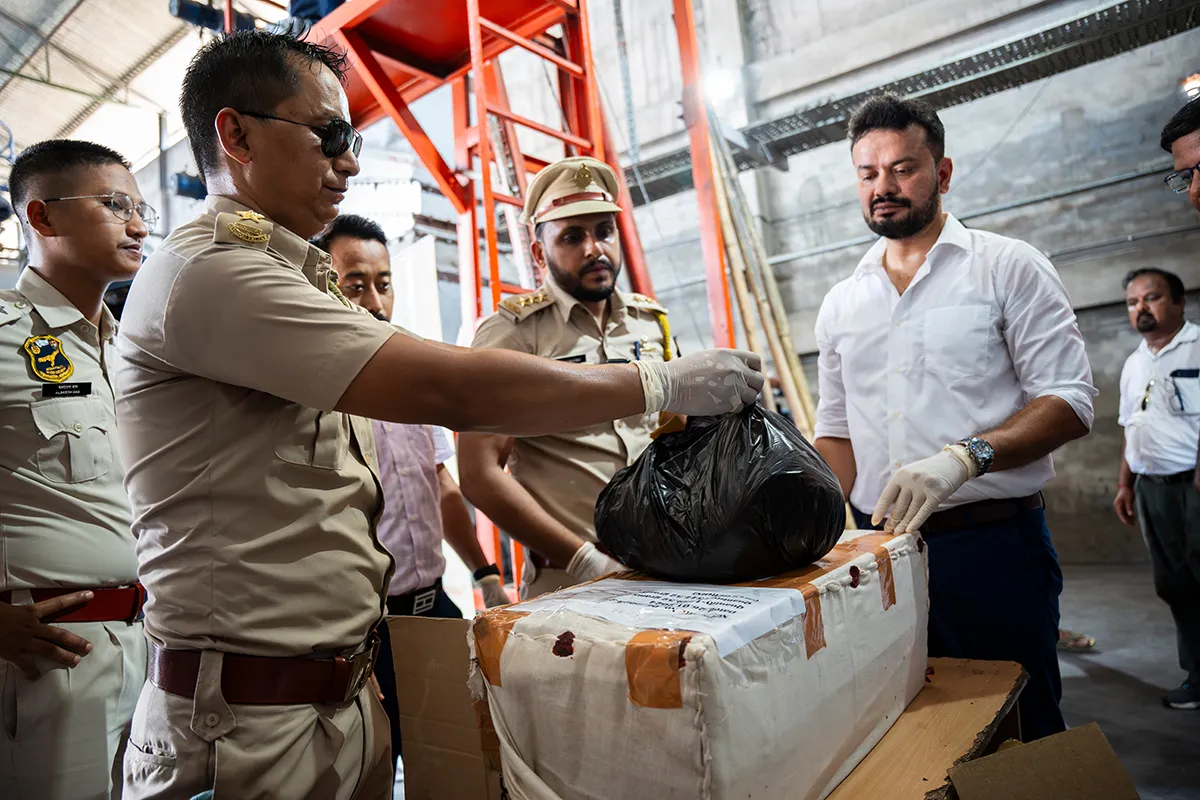On May 20, senior officials from Arctic countries and indigenous leaders met in Reykjavik, Iceland, for the 12th Ministerial of the Arctic Council. At the meeting, which marked the 25th anniversary of the council, Russia succeeded Iceland as council chair. Russia has staked out plans for its two-year leadership post of this important Arctic governance body amid growing concerns about regional militarization and climate change. The new role for Russia could herald opportunities to cool regional tensions — as well as challenges.
What happened at the 12th Arctic Council Ministerial?
Created in 1996, the Arctic Council is comprised of the eight Arctic countries — the United States, Canada, Denmark, Finland, Iceland, Norway, Russia and Sweden — as well as political leaders of six Indigenous Permanent Participants. The council operates by consensus and conducts its business mostly through six working groups, which focus on key Arctic challenges, including protection of the environment, sustainable development, and emergency prevention, preparedness and response.
At the ministerial, the participants signed the Reykjavik Declaration, “reaffirming the Council’s commitment to maintain peace, stability and constructive cooperation in the Arctic region, emphasizing Arctic States’ unique position to promote responsible governance in the region, and asserting the importance of immediately addressing climate change in the Arctic.” (Full text of the declaration is available on the council website.) The meeting also saw the adoption the first-ever strategic plan , which outlined the body’s work for the period 2021–2030. It focuses on environmental protection, sustainable social and economic development, and strengthening the Arctic governance body itself.
What are Russia’s plans for its 2021–2023 chairmanship
The motto for Russia’s chairmanship is “Responsible Governance for Sustainable Arctic.” Russian foreign minister Sergey Lavrov noted at the ministerial that Russia “intends to keep up the spirit of cooperation” and focus on the “promotion of sustainable development,” including its “social, economic, and environmental dimensions.”
According to former senior Arctic official for Russia, Anton Vasiliev, the Russian chairmanship has four priorities: “the Arctic inhabitants, including indigenous peoples; environmental protection and climate change; social and economic growth; further strengthening the Arctic Council.” The first meeting of senior officials under Russian auspices will take place in Moscow in June, and such work will continue until the 13th Ministerial in 2023.
Russia’s accession to the chairmanship comes amid its efforts to articulate a comprehensive vision and plans for the development of the Russian Arctic. Over the last two years, Moscow has released a Russian Arctic strategy and supporting documents for its implementation. It has also increased its investment in the region, including for construction of civilian and military infrastructure.
What are the key challenges in the Arctic?
The most pressing challenge facing the Arctic countries today is mitigating the deleterious effects of climate change, as the Arctic is warming at more than three times the average global rate. Melting permafrost, 65% of which is located on Russian territory, can be extremely damaging to local communities and infrastructure. Melting glaciers and ice sheets and the expansion of warmer waters raise sea levels, contributing to coastal erosion. Warming water and increased ocean acidity can disrupt the habitats of Arctic fish and other marine wildlife. Warmer oceans can also create less predictable and more dangerous weather patterns in the Arctic.
Another major challenge is managing geopolitical tensions. As Arctic ice melts, it opens up previously inaccessible waters and adjacent lands to shipping, mining, fishing, drilling, and other profitable activities, which has the potential to make the Arctic a stage for great power competition. Russia lays claim to the Northern Sea Route — a shipping lane through the Arctic Circle that is a faster alternative to the Suez Canal. The U.S. and others dispute Russia’s claim over the route and have conducted freedom of navigation operations through the area. Controversially, Russia recently claimed broader outer limits of its continental shelf, overlapping with Canada’s and Denmark’s claims. China is also vying to become a major player in the Arctic. In 2018, it released a white paper claiming that it is a “Near-Arctic state” and announcing a “Polar Silk Road” section of its Belt and Road Initiative.
There is also widespread concern over Russia’s increased militarization of the Arctic through the construction of bases and modernization of military capabilities in the region. Lavrov has noted concerns about NATO’s rotating military presence in Norway and reiterated Russia’s desire to renew meetings of military leaders of Arctic nations. However, in a May 12 interview, Russia’s senior Arctic official Nikolay Korchunov stated that Russia “doesn’t view the Arctic as a theater of military actions [because of] the significance of the Arctic for [Russian] national interests, primarily economic.” It remains to be seen how Russia will balance recent trends with its new chairmanship role of an organization dedicated to maintaining peace and cooperation in the Arctic.
What are the implications?
The primary implication of Russia’s Arctic Council chairmanship is that it provides Russia with an opportunity to lead an international forum, legitimizing its status as a key regional player. While it is true that the Arctic Council is primarily a consensus-based forum and has no lawmaking authority, the role still provides Moscow the opportunity to convene around 50 high-level events during a period when it is making a major effort to develop the Russian Arctic and stake out broader claims. Despite this advantage, reports that the chairmanship will allow Russia to “set the agenda” in the Arctic exaggerate the impact of the rotating leadership position.
The Arctic Council may also become a rare venue for U.S.-Russian cooperation. Unlike the preceding administration, the Biden White House has identified climate change as a priority issue. Oil spill preparedness, scientific cooperation, and search and rescue efforts have also been successful points of collaboration in the past. Despite tensions within the bilateral relationship, the council may provide opportunities for constructive, cooperative interaction on issues where both countries — and all regional stakeholders — stand to gain.



